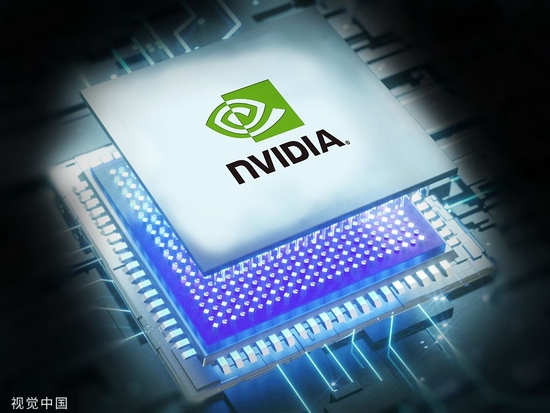your current location is:Home > TechnologyHomeTechnology
Washington's chip restrictions on China backfire on U.S. companies, Nvidia: May lose $400 million this quarter
A series of U.S. policies to pursue and block Chinese chip technology are counteracting U.S. domestic chip companies. According to Bloomberg, the Biden administration plans to impose broader chip technology restrictions on China, which may impose more conditions on companies exporting artificial intelligence chips and chip manufacturing equipment to China, which has put American chip companies under pressure.
Bloomberg previously reported that as early as late July, the U.S. Department of Commerce sent a letter to all U.S. chip production equipment manufacturers, requiring them to obtain relevant licenses before exporting 14nm and below chip production equipment to China. Equipment suppliers Fanlin, Kelei and Applied Materials have publicly stated that they have received relevant letters from the US Department of Commerce.
 Data map
Data mapAccording to Reuters, the U.S. Commerce Department plans to issue new rules based on export restrictions issued earlier to three U.S. chip production equipment companies, and intends to include previously issued export licensing requirements to Nvidia and AMD into the new rules. , that is, a license must be obtained to export AI chips to China. The New York Times reported that in recent years, the U.S. Department of Commerce has expanded restrictions on the supply of certain U.S. technologies to China on the grounds of “avoiding civilian use for military use.” While businesses involved can apply for a license to sell restricted products to specific customers, most applications are denied.
The increasing restrictions on exporting chips to China have made American chip companies "very hurt". Bloomberg reported that U.S.-based chip companies such as Nvidia had only expressed concerns about the escalating situation, but now the “most valuable U.S. semiconductor maker” said restrictions on exports of its A100 and H100 chips to China could lead to The company lost $400 million in the quarter. According to the financial report released by the company, its total revenue in the last fiscal year was US$26.91 billion, and its revenue in mainland China and Hong Kong was US$7.11 billion, accounting for 26.4%. On September 1, local time, affected by the news of export restrictions to China, Nvidia’s stock price fell by 12% during the session, and finally closed down 7.67%, evaporating $28.8 billion in market value. AMD also closed the day down about 3%.
At present, China has become one of the most important markets for global chip companies. If the United States continues to expand export restrictions, American chip companies may suffer heavy losses. This month, Broadcom CEO Chen Fuyang said about 13% of the company's chip revenue was related to China. Relevant data previously released by Intel shows that in 2021, Intel's revenue will be 74.7 billion US dollars, and the Chinese market will contribute about 20 billion US dollars, accounting for nearly 30% of the market share. According to data from the International Data Corporation (IDC), in 2021, the global chip transaction volume will be 582 billion US dollars, the Chinese market will be about 212 billion US dollars, and the Americas will be about 108 billion US dollars, which is only about half of China's. According to the Boston Consulting Group (BCG), if the United States continues to increase restrictions on chip exports to China, American chip companies will lose 18% of the global market share and 37% of their revenue, and reduce 15,000 to 40,000 high-skilled jobs. .
Bloomberg said that in the past, U.S. companies supported Washington's actions against Beijing because they believed that Chinese companies did not respect their intellectual property, but now, as more stringent regulations involve hundreds of billions of dollars, U.S. chip companies are reinventing the wheel. Consider their enthusiasm for White House intervention.
Next:The three giants face off against 2 nanometers: TSMC plans to mass-produce Samsung and Intel in 2025
related articles
Article Comments (0)
- This article has not received comments yet, hurry up and grab the first frame~











